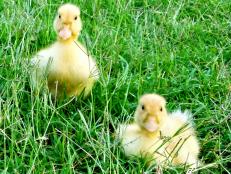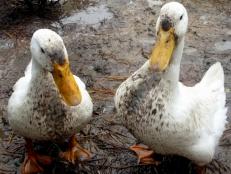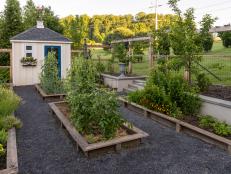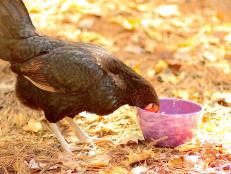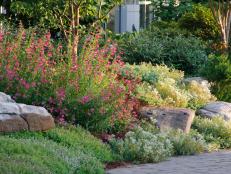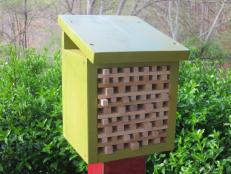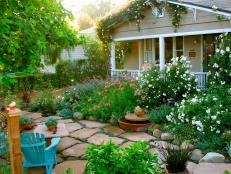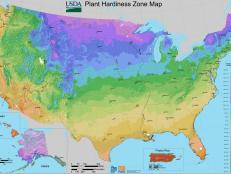Raising Ducks: Beautiful Landscaping and Birds
Keeping ducks and having a pretty garden don't have to be mutually exclusive.

There are those who will tell you that it is futile to try and grow anything in a yard that ducks have access to because ducks will trample and eat anything green. While that is true in theory, with a little patience and planning it is possible to create a beautifully landscaped yard for your ducks to roam.
Just because your ducks live in an enclosed yard doesn’t mean that you can’t provide them with as close to a natural, free range experience as possible. Our duck yard is attractively landscaped with bushes and shrubs, both to attract bugs for the ducks to eat, as well as to provide them with shade from the sun and shelter from the wind. The bushes also provide a natural screen against predators’ prying eyes. I replant grass seed each spring, as well as a small vegetable garden for the ducks in one corner of the yard, fenced off until it’s ready to “harvest.”
In addition to the benefits for the ducks of adding landscaping to their yard, an aesthetically pleasing duck yard instead of an eyesore will encourage you to spend more time with your flock (which benefits you both) as well as give your neighbors less potential reason to complain about you keeping backyard ducks.
Here are some tips to help you successfully landscape your duck yard:
Cage Small Bushes
It is true that ducks will eat almost anything you plant. Even if they decide they don’t like the taste of a particular bush, they will still systematically remove all the leaves and toss them on the ground, so it is very important to cage small bushes and shrubs until they grow at least two feet tall and the upper leaves are out of duck range. I use chicken wire or other fencing to form a cage around the bushes and then anchor the cage in place with stones.
Ring Roots with Rocks
Ducks are called “dabblers” for a reason. They love nothing more than to wiggle their bills around in the dirt and mud looking for bug larvae and worms, so a freshly watered tree or shrub is extremely tempting. All that dabbling will disturb and damage roots, so ringing the base of any bushes you plant with pavers or rocks will help protect the tender roots. You can remove the rocks once the plantings are established, but I prefer to leave them as a decorative accent that is both attractive and serves as a permanent barrier to the ducks.
Choose High-Traffic Grass Seed
If you plant grass seed, be sure it is untreated with any chemicals and choose the high-traffic varieties. The ducks will eat and trample the grass and dig small holes in it looking for worms, but they won’t yank it up by the roots or scratch it all up like chickens will. (However, a bit of replanting or filling in will still most likely be necessary each spring.)
Focus on Firs
The one type of shrub that our ducks seem to leave alone are those in the fir and evergreen families. Dwarf pine trees, juniper and other small firs provide some shade and have the added benefit of providing a nice barrier against cold winter winds.
Some of the specific plants that I find work very well in our duck yard include:
- Rosebushes: We have several climbing rosebushes in the yard. The bottom two feet of each bush is devoid of leaves, but the bushes thrive and the ducks love to eat the rose petals as they fall from the spent blooms.
- Hawthorn: The ducks haven’t touched the two hawthorn bushes that I planted this summer. They do like to munch on the berries though, which are edible and perfectly safe for them to eat.
- Butterfly Bushes: Butterfly bushes grow fast, are pretty and are apparently duck-proof. We have several in the yard that provide wonderful summer shade, as well as hiding places for the ducks, with their drooping branches.
- Juniper: The juniper bushes I planted several years ago are still doing well. Other than rummaging around the base a bit, the ducks don’t bother them. The junipers don’t provide much shade but they do attract bugs that the ducks like to eat.
Be aware that many, many plants are toxic to ducks. The list of unsafe plants is far too long to include here, so do your research before spending time and money on landscaping so it is not time wasted. Although ducks generally will avoid those plants they know to be bad for them, I err on the side of caution and only plant “safe” bushes. All those listed here are safe for ducks.
I derive great satisfaction from working outside gardening, so even though I had to go through a lot of trial and error before finding bushes that would survive our flock, it was time well spent. I hope that if you decide to raise ducks you will also devote some time to landscaping their yard for them — and for you.






